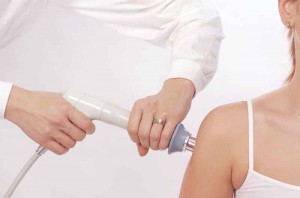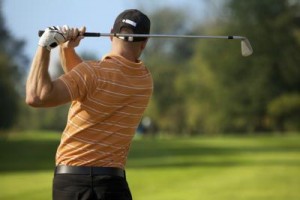 A rotator cuff can be understood as a group of four muscles and tendons around the shoulder joint that assists in movement and stabilization. They work in keeping the upper bone of the arm within the socket of the shoulder. They are also connected and also originate from the scapula. In case of an injury around the rotator cuff, it starts aching and becomes worse when you lie on the side that is affected. A shoulder ache is just one among the many muscle skeletal issues that arise from overusing the shoulder although there are other major causes.
A rotator cuff can be understood as a group of four muscles and tendons around the shoulder joint that assists in movement and stabilization. They work in keeping the upper bone of the arm within the socket of the shoulder. They are also connected and also originate from the scapula. In case of an injury around the rotator cuff, it starts aching and becomes worse when you lie on the side that is affected. A shoulder ache is just one among the many muscle skeletal issues that arise from overusing the shoulder although there are other major causes.
Causes of a Rotator Cuff Injury
To begin with, it is important to note that the injury cannot take place in the event of a single injury. It happens after a series of injuries. A rotator cuff injury can also be called the Calcific tendonitis of the shoulder where leads to the building up of calcium when the tendons become irritated. Events that lead to making the condition worse include painting, swimming, lifting heavy weights and racquetball. Lastly, the rotator cuff may also become weaker with a person’s age as the blood supply to the tendons is low
Symptoms of a Rotator Cuff injury
- Swelling and a lot of pain on the front side of the shoulder.
- Feeling a lot of pain when you lie on the side which is affected.
- Pain as a result of raising or lowering the hand
- Pain that wakes you up at night when sleeping.
- Pain when trying to reach your back.
- The decrease in the ability to move the arm to the side.
- Pain that comes in a gradual manner and worsens especially when trying to turn the arm inwardly.
- Stiffness
What is Shockwave Technology?
Shockwave technology is a type of sports injury treatment that is done using water done in sports and spinal physio clinics. However, it has also been found to be effective in the treatment of internal organs and kidney stones. Shockwave technology in treating sports injuries began being in used in the 1980s. With the advancement of technology; a shockwave machine became more popular. It has been improved in terms of design over the years to become more efficient.
The effectiveness of treating a rotator cuff with Shockwave technology
Notably, it does not encourage using painkillers which are not effective because they only treat as per the time you have taken. It ensures the rotator cuff is fully functional after only four months of shockwave treatment in a sports and spinal physio clinic. The pain decreases after three weeks of beginning the treatment. It is also noninvasive therefore patients can undergo it and go home the same day. This also means you experience less bleeding; therefore, the body heals faster. For the last two decades, patients who have treated shoulder calcific of the rotator cuff have proved to have an increase in muscle strength, an increase in the range of movement and also quick pain relief. After the use of shockwave technology on a patient, the patient can also undergo physiotherapy. This is because it allows the shoulder to heal better by increasing blood circulation.
